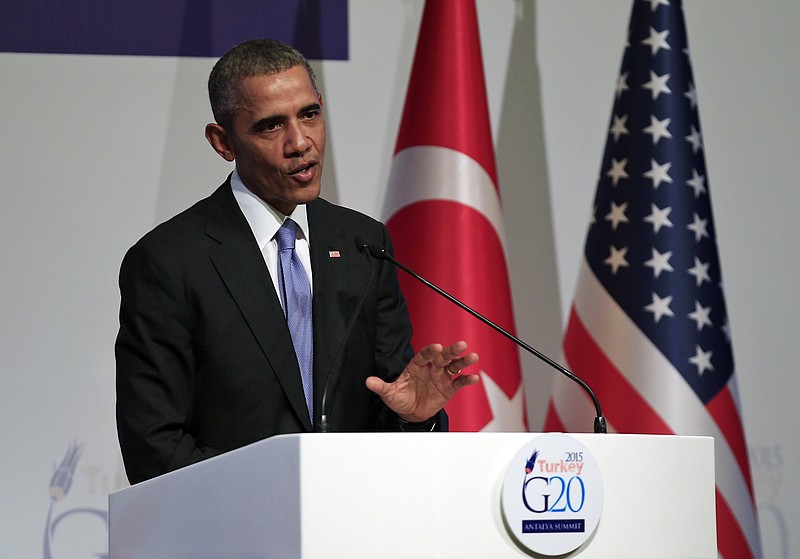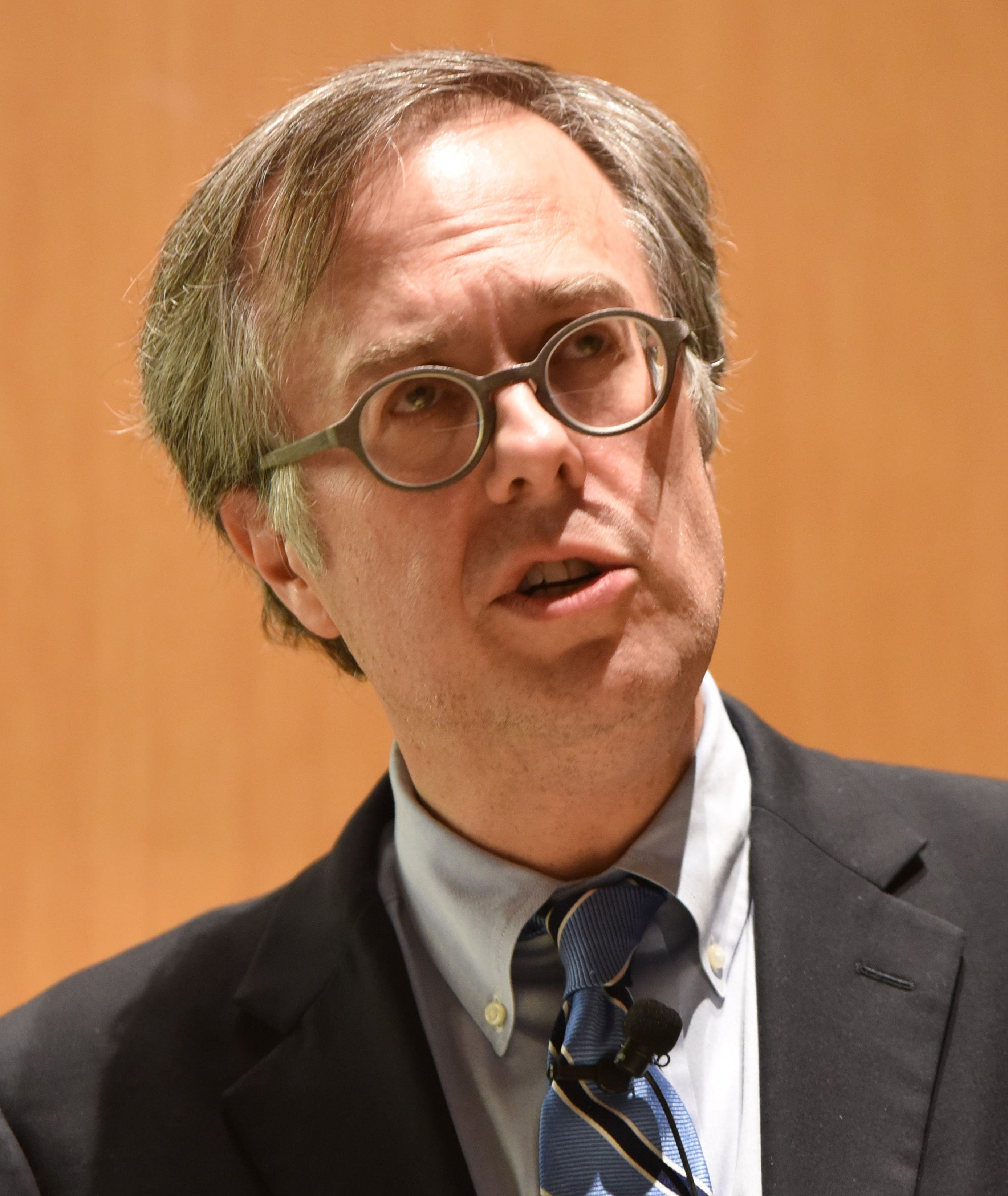WASHINGTON - An event that invokes widespread fear and confusion, such as the Paris attacks, is also an occasion for leadership. The resulting intense public focus opens a brief window for explanation and inspiration. In moments of crisis or challenge, a leader can figuratively speak from the ruins.
The president I served, George W. Bush, did so literally after 9/11: "The people who knocked these buildings down will hear all of us soon." At the 2005 Gleneagles G-8 meeting, I saw Prime Minister Tony Blair, ashen and subdued, just after receiving news of the London bombings. Returning to London, his public response was steady and unifying.
So what has been President Obama's response to a series of Islamic State terrorist attacks - a Russian plane in Egypt, suicide bombings in Beirut, the Paris massacre - that demonstrate an uncontained global threat? His Nov. 16 news conference in Antalya, Turkey, provides a full picture of Obama's wartime leadership in its seventh year: petulant, divisive and reluctant.
Under close questioning about the effectiveness and urgency of his strategy to fight the Islamic State, Obama quickly pulled out the big guns - against his American critics. They are "talking as if they're tough" and playing "political games," which would betray "a 25-year-old kid who's paralyzed or has lost his limbs."
It is almost beyond belief: A commander in chief, in a time of national testing, deploying limbless soldiers as a rhetorical trump card against his political opponents. In Turkey, Obama expressed more obvious relish for his own partisan battles than for the nation's military goals. America has a president whose wartime leadership is apparently inspired, not by Winston Churchill or Franklin Roosevelt, but by Rachel Maddow.
Another trump card played by Obama in Turkey against his critics was the approval of the U.S. armed forces. "We have the finest military in the world," he said, "and we have the finest military minds in the world, and I've been meeting with them intensively for years now, and it is not just my view but the view of my closest military and civilian advisers that that [an expanded military role] would be a mistake."
How could anyone argue with that? Except that in 2011, Adm. Mike Mullen, chairman of the Joint Chiefs of Staff, sent a classified letter to the White House urging the president to keep 16,000 troops in Iraq, which Mullen called "my best military advice." With his re-election coming up, Obama overruled Mullen in favor of a lower number. And then the Obama administration did not really push to retain any troops at all. In a 2014 New Yorker article by Dexter Filkins, we learned: "Ben Rhodes, the U.S. deputy national-security adviser, told me that Obama believes a full withdrawal was the right decision." All of which left Iraq less prepared for the emergence of rise of the Islamic State.
Obama has made a habit of this for years now. He bumped up troop levels in Afghanistan in 2010 under pressure from military leaders, but only as part of a strategy of withdrawal on an announced timetable, which is absurd from a military perspective. As civil unrest in Syria turned into civil war, Obama refused to support American proxies in the conflict - against the advice of his secretary of defense, his secretary of state and his CIA director. Obama has often used military advice as a cafeteria offering, picking elements that are consistent with his political promise of "no boots on the ground" and his reputation as the ender of wars.
A president is free, of course, to disregard the advice of military commanders. But he is not then free to claim their blanket blessing on a policy that has resulted in a strategic and humanitarian nightmare.
In truth, President Obama's public leadership in the war against terrorism, now expressed as the war against the Islamic State, has always been sporadic and halfhearted. The leader who took credit for "responsibly ending" America's wars and who argued it was "time to focus on nation-building here at home" is now peeved by criticism of his wartime leadership.
Obama now speaks, sullen and embittered, from the ruins of our national security debate.
Washington Post Writers Group

